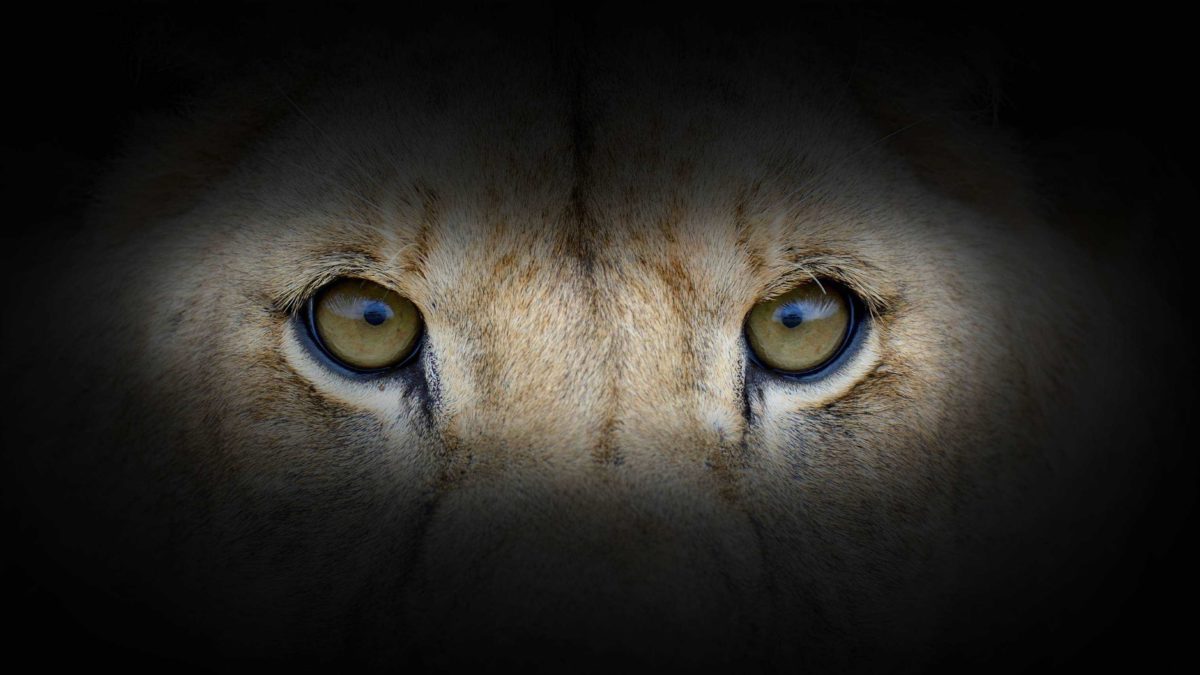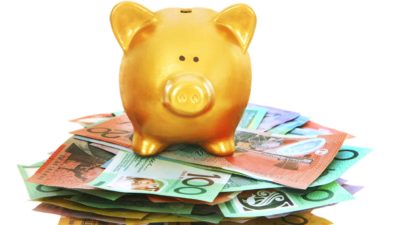There's a thing about pessimism.
It just sounds smart, right.
The dour, considered view, outlining everything that could go wrong.
It makes sense to consider the risks. To recognise the potential pitfalls. To factor in the evidence that could tear us asunder.
And it's deeply evolutionarily rooted. The off chance you might be taken by a lion was really worth thinking about.
Moreover, early evolutionary life selected for pessimism.
Generations of 'What if it's a lion?' thinking meant survival of the person, and their genes.
Those who had a more 'She'll be right' attitude, well, had less chance of passing that view to their offspring.
And yet.
And yet, the story of humanity is one of deep, deep optimism.
It's the story of growth. Of innovation. Of taking risks.
It's the story of progress.
James Watt decided to try to invent the steam engine. The Suffragettes thought women should be allowed to vote. Howard Florey devoted his life to scientific discovery, identifying penicillin in the process. Steve Jobs wanted to build a beautiful computer.
None of these happen if the people involved look at the risks and think 'Nah, I won't try, just in case. I mean, look at what can go wrong!'
Perhaps more importantly, for them, and in our context. None of them happen if they gave up because people said it couldn't be done. Or because there were hurdles, and the progress took time, effort and commitment.
I share this thought because I worry about the impact of Negative Nellies on investors.
The ones who only see problems, risks and bad news.
See, in March and April this year, I was yelling — almost literally — here, on our Facebook Live Chats, with our members… just about everywhere… that I thought abandoning the investing ship in the face of COVID was going to be a huge mistake.
Not because I knew the market would bounce back so far or so fast, but because I was convinced it would bounce back.
I mightn't have been Robinson Crusoe, exactly, but there weren't too many of us on Optimism Island at the time.
The smart people sold. They knew things were going to get worse. They were too smart, you see, to hang around while share prices kept falling.
Except, they didn't.
And many — maybe even most — of those people missed the recovery, or much of it, while they held to their beliefs.
These are smart people.
Thoughtful, earnest people.
Making the calls they genuinely thought were right.
But — and here's the point — for what?
See, the beauty of investing is that — done properly — it's not a 'lion or no lion' question.
If you're suitably diversified and you're not relying on margin loans (you're not, are you?), then the sharemarket 'lion' is closer to a passing storm on a diversified farm.
Yes, it might wipe out part of your crop. Yes, it might set you back a year or so. Yes, you might have to clear some debris and replant some of your fields. But you almost never have to start from zero.
And when the rain is over and the sun comes out, the crops will come back.
But here's the kicker.
Maybe the storm doesn't come.
Maybe it's a short, sharp rainshower.
Or maybe the clouds blow over harmlessly.
Can you imagine a farmer ploughing her crops into the ground every time the prospect of a storm was raised?
Or refusing to plant, just in case the rains don't come?
"I'll wait for the weather to arrive, then I'll decide" is 'smart' — unless you're a farmer, in which case you know full well that it's too late by then.
"I won't harvest the crop, because there's a chance the silo gets a hole in it"
"I'll harvest now, even though the plants are only partly grown, just in case there's no rain next month"
I hope those examples sound silly.
I also hope you understand the analogy.
Because here's something I've said before, and that I'll keep on saying:
The ASX has never yet failed to regain, and surpass a previous high.
Get it?
The lion isn't coming.
The storms will come, from time to time, but the farm will, despite the occasional setback, be more and more productive, over time.
Now, you can be in the storm prediction business if you want.
You can be the farmer who assumes the worst, and abandons his crops at the first sign of potential trouble.
You can seem 'smart' when, once in a blue moon you get your 'predictions' right.
And you can even feel smug when you say 'Well, the storm didn't come, but at least I was prepared for it'.
But good luck making money that way, over any length of time.
See, the stock market is almost stupidly biased in favour of the (sensible) optimists.
No, not the speculators, day traders or the gamblers.
The optimists.
The market goes up, over time.
Meaning, if you're a pessimist, the odds are already stacked against you.
It's a stacked deck. A loaded dice. A weighted coin.
The irony is that the people smart enough to develop comprehensive bear cases for the market or the economy as a whole can't see it.
Or don't want to see it.
Maybe it's too simple. You can't sound smart that way. Or feel smart.
Maybe it's because their egos don't like the idea that they could get rich without needing to be smarter than the other guy.
But it's a helluva thing, isn't it?
I had a conversation on Twitter yesterday with some smart people. See, I think the economy is really starting to show strong signs of life. Others disagreed.
And for all I know, they're right. I don't think they are, but they might be.
The thing is, for the long term investor, it just doesn't matter.
Nor do the short term movements of the ASX.
(But how many of the self-professed gurus picked the fact the market would be up 7% in 7 days recently?)
You, my dear, capital-F Foolish reader, have two choices.
You can get distracted — and worse — by the smart-sounding talking heads and prognosticators. You can buy into their stories of gloom and tales of woe.
Hell, you'll actually be right sometimes if you do.
Or, you can choose the other path.
The decried and derided 'Optimism wins' route.
See, optimism isn't blind faith. It isn't ignoring reality. It isn't shutting your eyes, clicking your heels and saying 'there's no place like home'.
It's realising that humanity and progress are inseparable, despite setbacks. It's looking at centuries of human achievement — and more than a century of stock market history — and hitching your wagon to that train (if you'll excuse the mixed metaphor).
You won't get to write best-selling books.
Your name won't be quoted as the guy or girl who 'predicted the crash'.
You won't be one of the cool kids.
You'll just have to make do with building life-changing wealth — at least if history is any guide.
Yeah, it's a burden, but someone has to do it.
Shouldn't it be you?
Fool on!









